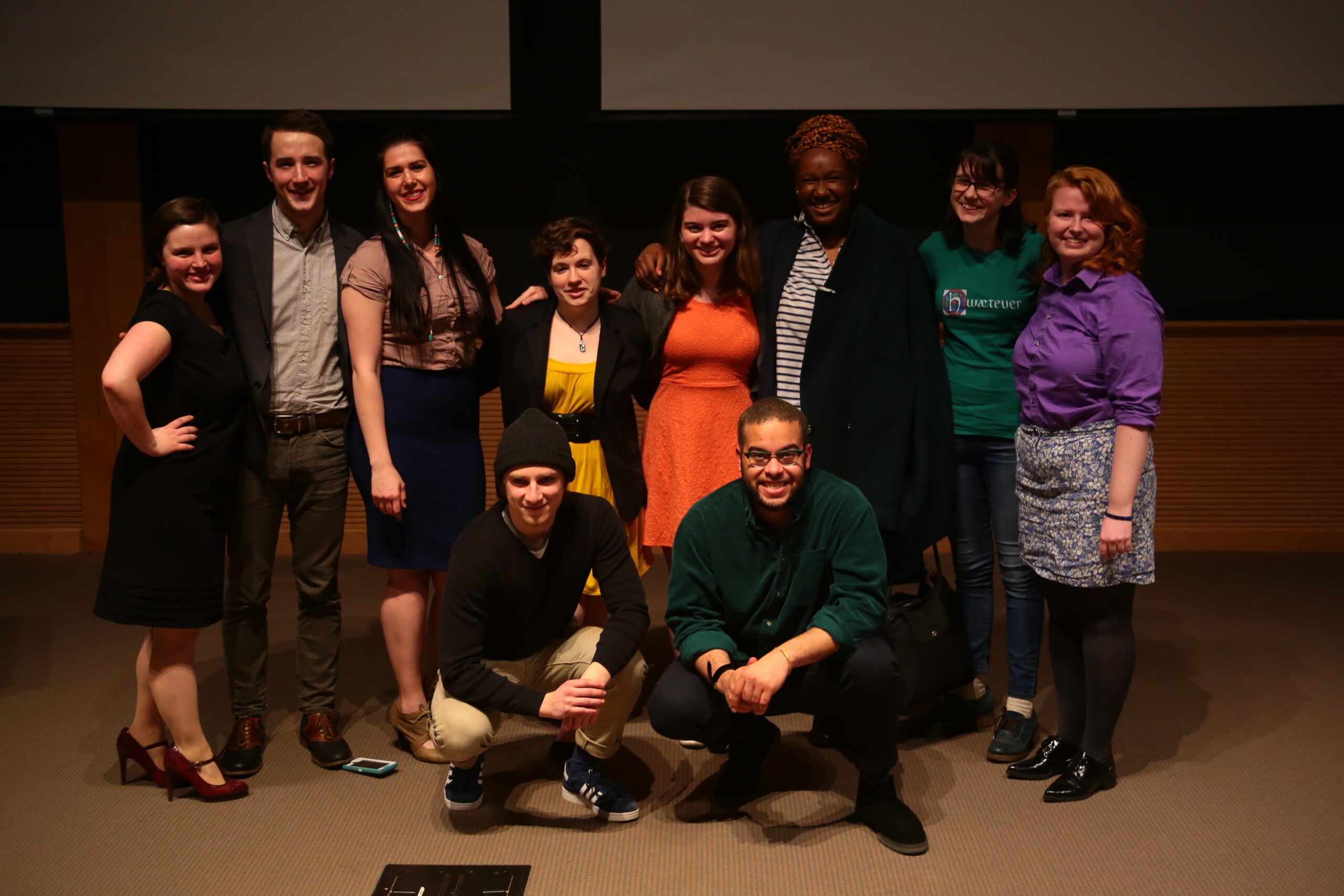The WheaTalks are based on the Sapling Foundation TedTalks: Ideas Worth Spreading. Participants at Wheaton were invited to speak about anything they wanted to over a ten minute period. The Roosevelt Institute’s fifth annual WheaTalks took place on March 28.
“Roosevelt did a great job working with all of us who presented, making sure that we were ready for the event,” said speaker Zach Marlay-Wright ‘16. “I’m grateful for all the work they put in.” Marlay-Wright presented the talk Opening Up: An Argument for a World Without Borders.
Though the ten presentations took about two and a half hours to get through, energy was high in the packed Hindle Auditorium. “It was really very interesting,” said Rodney Rugamba ’19, attendee. “I’m learning a lot I didn’t understand before. I thought I would leave part way through, but I was compelled to stay.”
The other presentations were Learning Fear by Professor of Anthropology Gabrielle Torres, The Artistic License: Separating Good Art from Controversial Artists by Christina Smith ’19, Leeches, Herbs, and Humours: Women in Medieval Medicine by Rowan Lowell ’17, Disabilities: Unlocking the Hidden Potential by Ethan Stark-Miller ’18, Hold the Blacks Back: Educational Inequity in America by Nataja Flood ’16, From the Eyes of Jamalpur by Karl Rivera ’16, Oil for Blood: Connecting the Violence of Indigenous Lands and Bodies by Rana LaPine ’16, The Depressed Artist: Emotional Monopoly or Elitist Institution by Jordana Joy ’17 and Robots in Beowulf: The Humanities and the Computers by Audrey Dubois ’17.
“I had wanted to present a WheaTalk ever since I first saw them my freshman year. It was my hope that by my senior year, I would be as passionate about a subject as that year’s presenters were,” Marlay-Wright said.
The Roosevelt Institute plans to hold their sixth WheaTalks in the coming Spring semester.“I don’t think my presentation was by any means perfect but it was a great experience working on a somewhat radical topic, making it as accessible as possible,” Marlay-Wright said.

